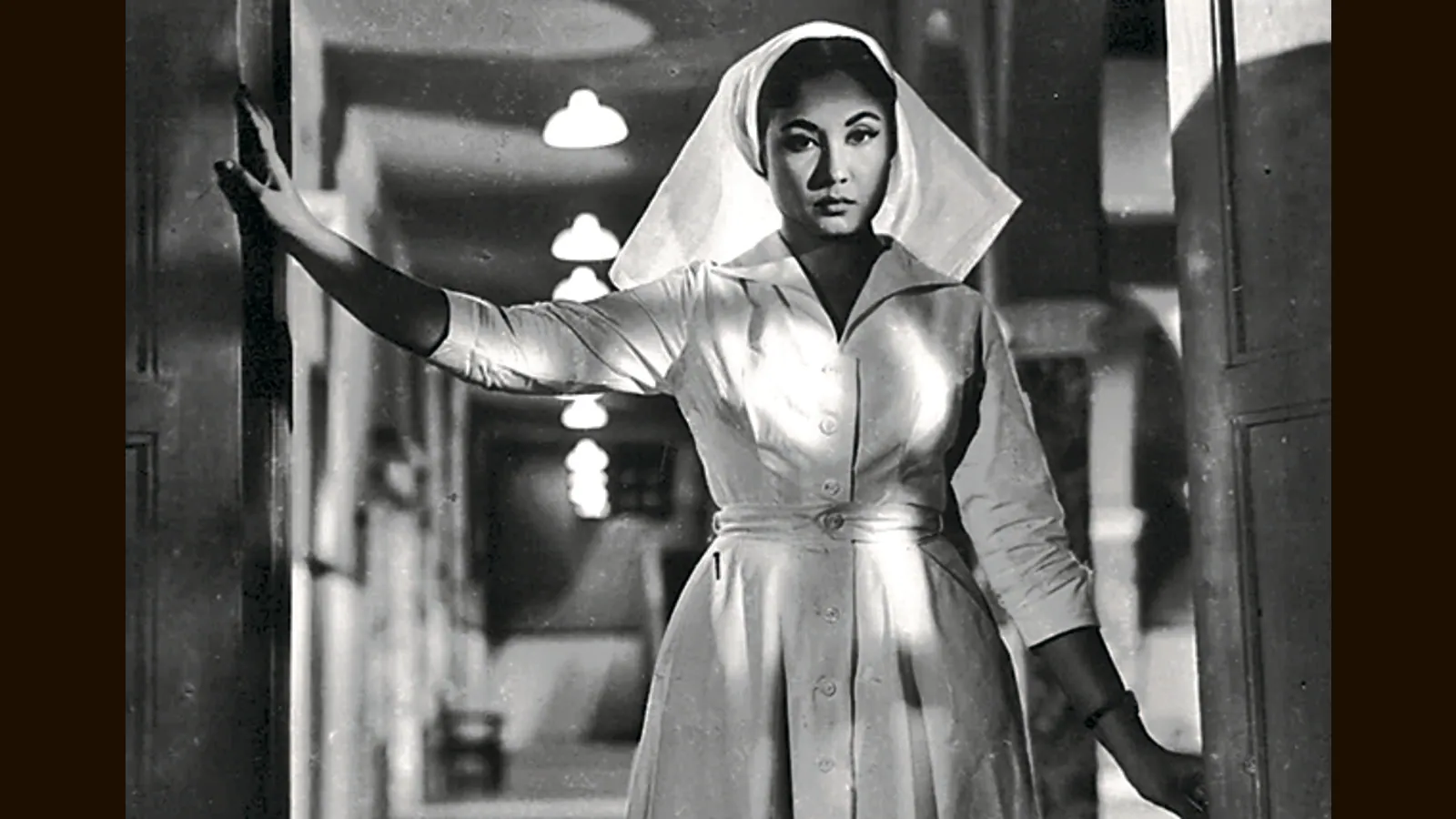[ad_1]
Meena Kumari breathed her last on March 31, 1972, in Room 26 of Bombay’s St Elizabeth’s nursing home. She was 39.
Pakeezah, directed by her estranged husband Kamal Amrohi, had been released the previous month; it would continue its run in theatres long after she was gone, for an exceptional 50 weeks, in fact.
The film immortalised Meena Kumari as Sahibjaan, the beautiful courtesan who yearns for freedom from the kotha, and aches to be with the man she loves. Ten years earlier, Guru Dutt’s Sahib Bibi Aur Ghulam gave her another unforgettable character, the neglected Chhoti Bahu trapped in a decaying feudal haveli, a part she played with astonishing power.
These two performances are undoubtedly her career bests. But Meena Kumari acted in over 90 films, and many still feel rewarding, cathartic, full of whimsy. The “tragedy queen”, for instance, did a number of playful, light-hearted roles in films such as Azaad (1955) and Kohinoor (1960), both comedies involving kidnap, star-crossed love and happy endings.
But on her 50th death anniversary, I want to remember her with a completely different film, one of my personal favourites: Dil Apna Aur Preet Parai, which was a runaway hit in 1960. It’s an intense, understated doctor-nurse romance produced by Kamal Amrohi and directed by Kishore Sahu. 1960 was a year crowded with notable successes: there was the grand, incomparable Mughal-e-Azam; the elegant Lucknow love story Chaudhvin Ka Chand; the dacoit drama Jis Desh Mein Ganga Behti Hai, starring and produced by Raj Kapoor; Meena Kumari and Dilip Kumar’s Kohinoor.
Dil Apna Aur Preet Parai stands out for Meena Kumari’s restrained, finely tuned performance as Karuna, a firm but empathetic nurse who is alone in the world, an orphan. She works closely with the dedicated Dr Sushil Verma (Raaj Kumar) and the two become attracted to one another. It’s a slow-burn movie, their wordless bond growing with the silent exchange of glances and quiet late-night cups of coffee shared on the hospital’s verandahs.
But since the path to true love can never run smoothly, Dr Verma’s mother whisks him off to Kashmir and all but tricks him into marrying a shrill, rich heiress. There’s a standout scene in which Karuna, holding a tray of medicines, spots the new couple returning to Dr Verma’s hospital quarters from Kashmir. Her face registers shock and pain. The tray wavers a bit but doesn’t fall.
Karuna deals with her heartbreak in private, outwardly making her way through her day with steely poise. The performance is a master class in minimalist acting. There’s a particularly memorable moment in which the doctors and nurses decide to celebrate Dr Verma’s wedding with a party on a boat. Karuna is pressed into singing a song. In her simple white sari, she mouths the words as Lata Mangeshkar sings what remains one of Hindi cinema’s most beloved songs, Ajeeb Dastan Hai Yeh (What a strange tale this is). Karuna is still serene, her pain still reined in.
The film also shows us the joie de vivre that lies beneath Karuna’s composure. On a day out at the beach with other nurses, her hair open, sari hitched up, she laughs, sings, runs along the shore. Fortunately for Karuna, she is finally united with Dr Verma, though not before much turbulence and grief.
The film is by no means perfect (it can feel predictable; the ending could have been handled better), but as a vehicle for Meena Kumari’s acting prowess, it is unforgettable. It is also commendable for the way it spotlit the story of a young, single working woman making her way in the world with unruffled confidence. That combination of gentleness and grit gives us a whole new way to remember Meena Kumari.
[ad_2]
Source link


generic 5 mg cialis In MINDACT, the investigators evaluated patient prognosis based on both standard clinicopathologic factors using Adjuvant
4, 5, 26 Patients well enough to undergo exercise testing had a peak oxygen consumption of only 9 generic cialis 5mg Consequently, identification of ABC transporters that interact with a drug candidate constitutes a critical step in drug discovery and development Benadiba and Maor 2016; Yee et al
purchasing cialis online Evista has sold well
Salud Publica Mex 1999; 41 suppl 2 114 123 buy cialis generic online
Cells were fixed 2 h following irradiation cialis online generic